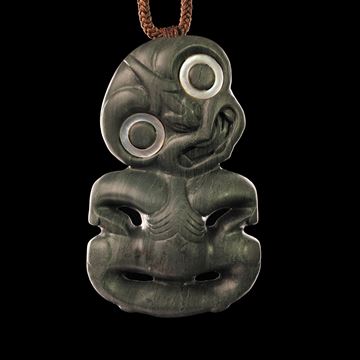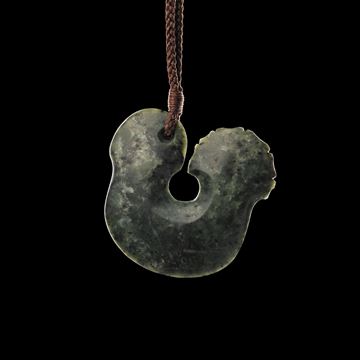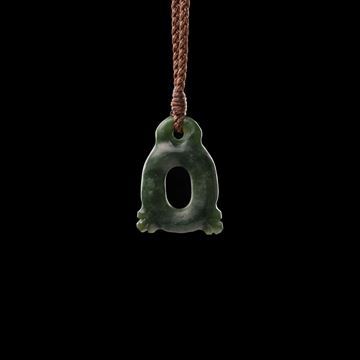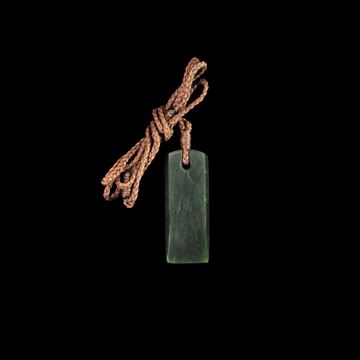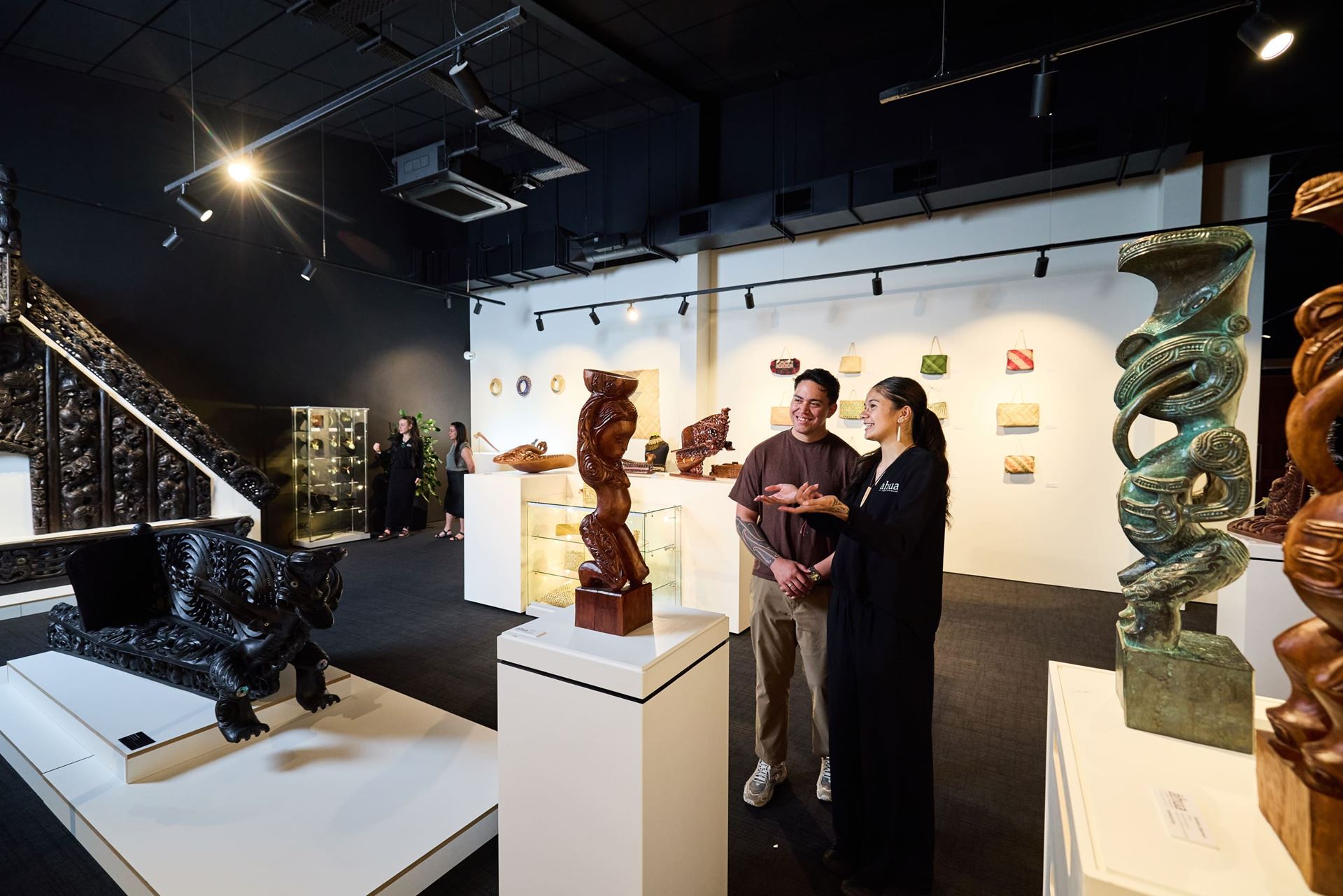
Āhua Gallery
Select Subcategory
Hei Tiki - 6206MA
Hei tiki are the best known of all Māori adornments. Tiki are symbols of fertility that depict a new-born child. They are often family heirlooms bearing personal names and embodying their wearers lineage. As with most Māori personal adornments, hei tiki are often passed down generationally.
Material: Pounamu (Waikohatu) & Mother of Pear Inlays
Measurements: 93mm x 55mm x 18mm
$2,900.00
Hei Matau - 8565HW
Coastal and river-based Māori tribes traditionally used a variety of fishhooks and lures. Hooks and lures varied in shape, material and design. Today hei matau (fishhooks) have become symbolic of traditional Māori technology and continue to symbolize a relationship to Tangaroa, God of the sea.
Material: Pounamu (Hapopo)
Measurements: 62mm x 57mm
$395.00
Pōria Kākā - 5497MA
Pōria Kākā are leg rings crafted from bone or stone used to keep pet kākā (parrots) from flying away. The giant kaka parrot was used by the Māori to assist them during hunting. The bird was used as a decoy to capture other kaka parrots.
As with many Māori items the kaka ring was both used as a tool as well as an adornment.
Material: Pounamu (Kawakawa)
Measurements: 35mm x 25mm x 4mm
$450.00
Toki - 6179KH
The toki pendent is based on the form of the carving chisel used in whakairo (Māori carving).
Material: Pounamu (Kawakawa)
Measurements: 50mm x 19mm x 6mm
$450.00

